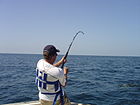
Izaak Walton was an English writer. Best known as the author of The Compleat Angler, he also wrote a number of short biographies including one of his friend John Donne. They have been collected under the title of Walton's Lives.

Juliana Berners, O.S.B.,, was an English writer on heraldry, hawking and hunting, and is said to have been prioress of the St Mary of Sopwell, near St Albans in Hertfordshire.

Recreational fishing, also called sport fishing or game fishing, is fishing for leisure, exercise or competition. It can be contrasted with commercial fishing, which is professional fishing for profit; or subsistence fishing, which is fishing for survival and livelihood.
Edmond Hoyle was an English writer best known for his works on the rules and play of card games. The phrase "according to Hoyle" came into the language as a reflection of his broadly perceived authority on the subject; use of the phrase has since expanded to any appeal to a putative authority.

The Georgics is a poem by Latin poet Virgil, likely published in 29 BCE. As the name suggests the subject of the poem is agriculture; but far from being an example of peaceful rural poetry, it is a work characterized by tensions in both theme and purpose.

The Compleat Angler is a book by Izaak Walton, first published in 1653 by Richard Marriot in London. Walton continued to add to it for a quarter of a century. It is a celebration of the art and spirit of fishing in prose and verse.
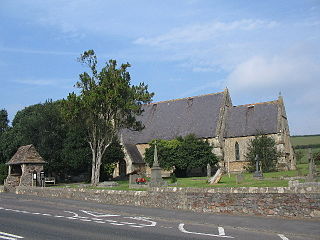
Wick is a village in South Gloucestershire, England. It is the main settlement in the civil parish of Wick and Abson. The population of this civil parish taken at the 2011 census was 1,989.
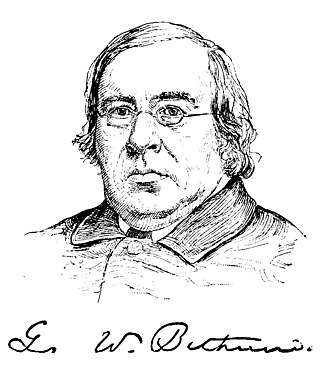
George Washington Bethune was a preacher-pastor in the Dutch Reformed Church.
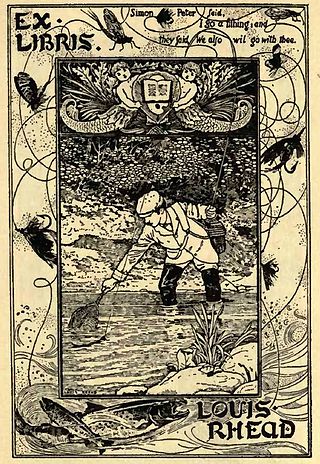
This general annotated bibliography page provides an overview of notable and not so notable works in the English language regarding the sport of fly fishing, listed by year of first publication. Although not all the listed books are devoted exclusively to fly fishing, all these titles contain significant fly fishing content. The focus of the present page is on classic general texts on fly fishing and its history, together with notable public or university library collections dedicated to fly fishing.

A Concise Treatise on the Art of Angling- Confirmed by Actual Experiences and Minute Observations to Which is Added the Compleat Fly-Fisher is a fly fishing book written by Thomas Best, first published in London in 1787.

The Salmon Fly - How to Dress It and How to Use It is a fly fishing book written by George M. Kelson published in London in 1895 by Messers. Wyman & Sons, Limited. This Victorian guide to fly fish tying built up the illusion that angling for salmon required feathers of exotic bird species.

A Book on Angling – Being a complete treatise on the art of angling in every branch is a work of angling literature with significant fly fishing content written by Francis Francis, angling editor to The Field and published in London in 1867 by Longmans, Green and Company.

Blacker's Art of Fly Making - comprising angling and dyeing of colours with engravings of Salmon and Trout flies shewing the process of the gentle craft as taught in the pages with descriptions of flies for the season of the year as they come out on the water is a work of fly tying literature with significant fly fishing content written by William Blacker, a London tackle dealer and first published in London in 1842 by George Nichols. The 1842 and 1843 editions were only 48 pages while, the 1855 edition was considerably expanded by Blacker with hand-painted, colored illustrations and 252 pages.
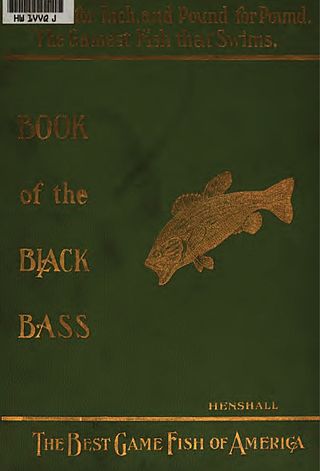
Book of the Black Bass - Comprising Its Complete and Scientific and Life History with a Practical Treatise On Angling and Fly Fishing and a Full Description of Tools, Tackle and Implements is a work of angling and fly fishing literature on the subject of Black Bass written by James A. Henshall, M.D., a mid-western medical doctor and first published in Cincinnati in 1881 by Robert Clarke & Co.

Colin Clouts Come Home Againe is a pastoral poem by the English poet Edmund Spenser and published in 1595. It has been the focus of little critical attention in comparison with the poet's other works such as The Faerie Queene, yet it has been called the "greatest pastoral eclogue in the English language". In a tradition going back to Petrarch, the pastoral eclogue contains a dialogue between shepherds with a narrative or song as an inset, and which also can conceal allegories of a political or ecclesiastical nature.

John Dennys, a poet and fisherman, pioneered Angling poetry in England. His only work The Secrets of Angling was the earliest English poetical treatise on fishing. John Dennys may have been an acquaintance of Shakespeare.
Thomas Barker (fl.1591–1651) was an English fishing guide and author of The Art of Angling (1651).

The Fly-Fisher's Entomology, Illustrated by Coloured Representations of the Natural and Artificial Insect and Accompanied by a Few Observations and Instructions Relative to Trout-and-Grayling Fishing, first published in 1836 by Alfred Ronalds (1802–1860), was the first comprehensive work related to the entomology associated with fly fishing. Although the work was Ronalds' only book, it was published in 11 editions between 1836 and 1913 and has been extensively reprinted in the last 100 years.
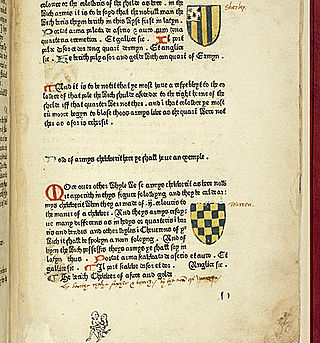
The Book of Saint Albans, originally Boke of Seynt Albans, is the common title of a book printed in 1486 that is a compilation of matters relating to the interests of the time of a gentleman. It was the last of eight books printed by the St Albans Press in England. It is also known by titles that are more accurate, such as The Book of Hawking, Hunting, and Blasing of Arms. The printer is sometimes called the Schoolmaster Printer. This edition credits the book, or at least the part on hunting, to Juliana Berners as there is an attribution at the end of the 1486 edition reading: "Explicit Dam Julyans Barnes in her boke of huntyng".



















